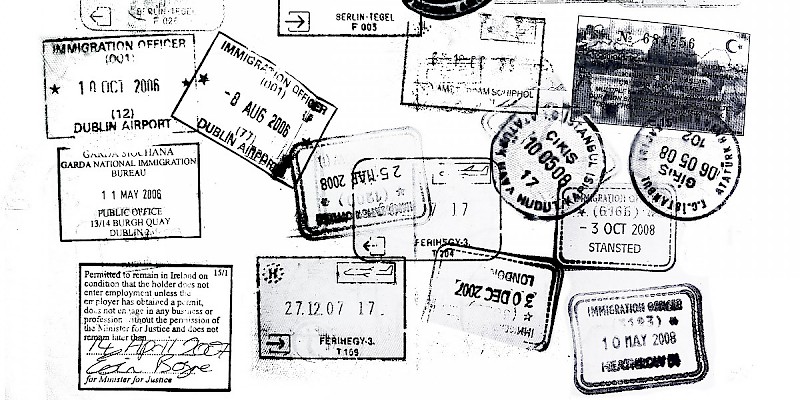Travel visas for the U.K.

Visitors from most developed nations will receive an automatic tourist visa upon entering the U.K.
A visa is an official stamp or piece of paper granting a foreign national the right to enter a country.
(It comes from the French, visée, because back in the day it meant that an official had "looked" over your travel and identification documents—precursors to passports).
A valid passport is the only documentation an American—or, indeed, a visitor from pretty much any developed nation—needs to visit the U.K. (or any other Western European country for that matter).
Your passport will be stamped wherever you enter Britain with a temporary tourist visa that's good for 90 days of travel within the U.K.
If you plan to stay in the United Kingdom longer that 90 days, contact the British consulate in the United States before you leave to get a specific visa—work, study, whatever—or any U.S. consulate once you are already abroad.
Failing that, you can always go to another part of Europe for 90 days so your tourist visa can reset before returning to the U.K., at which point you can get another 90-day visa.
Can't I just overstay my visa?
In the past, many western countries haven't really cared if tourists from other western countries spend five, six, seven months hanging around. I've routinely gone over for more than 90 days—on one memorable occasion, for about 18 months—and no one ever questioned me about it. (Yes, technically that means I've been an illegal immigrant in Europe many times over, but, well, there you go.)
However, in recent years, many European countries—including the U.K.—have been cracking down on this practice.
Yes, they probably will not discover that you overstayed your welcome until you go to leave and they look at your passport. However, they can still charge you a hefty, bar you from returning to the U.K. for a long period (or make you go through an immigration process each time you do want to return), or even imprison you.
I would no longer risk it, especially in the U.K.






